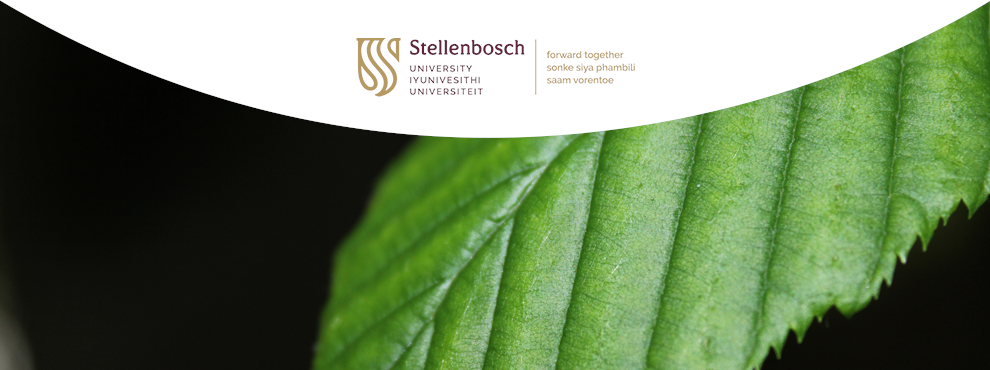On campus
Biodiversity entails the preservation of life and living organisms of various types and forms. Biological diversity is the life-sustaining resources relied on by current and future generations.
Biodiversity forms part of Stellenbosch University's ecological sustainability strategy for 2018 to 2023.
The following objectives have been determined:
Increasing the number of local endemic species by 20%.
Having zero tolerance for invasive species.
80% of all trees planted on campuses to be endemic species.
Facilitating the continuous processing of garden areas, where possible, to increase the living microorganisms in the soil.
50% of plants in the landscape to consist of hardened, water-wise plants.
The rehabilitation of 90% of eroded areas.
To achieve these objectives, Stellenbosch University already does the following:
Invasive species in the mountains and rivers are controlled on all campuses.
Indigenous species are planted. As such, 10 hectares of land on the Tygerberg Campus already consists of indigenous fynbos and two hectares of Karoo veld has been retained on the Worcester Campus.
Renewable sources are used for paper purchases.
Owl and bat boxes are erected to encourage diversity and natural pest control on campuses.
Biological control is exercised via the Falcon programme.
Food and compost waste is processed on campus and shredded plant material is used as nutrition in gardens.
Food gardens are administered by student societies that were piloted by FM.
Tree planting is continuous and is encouraged on campuses as part of new projects.
